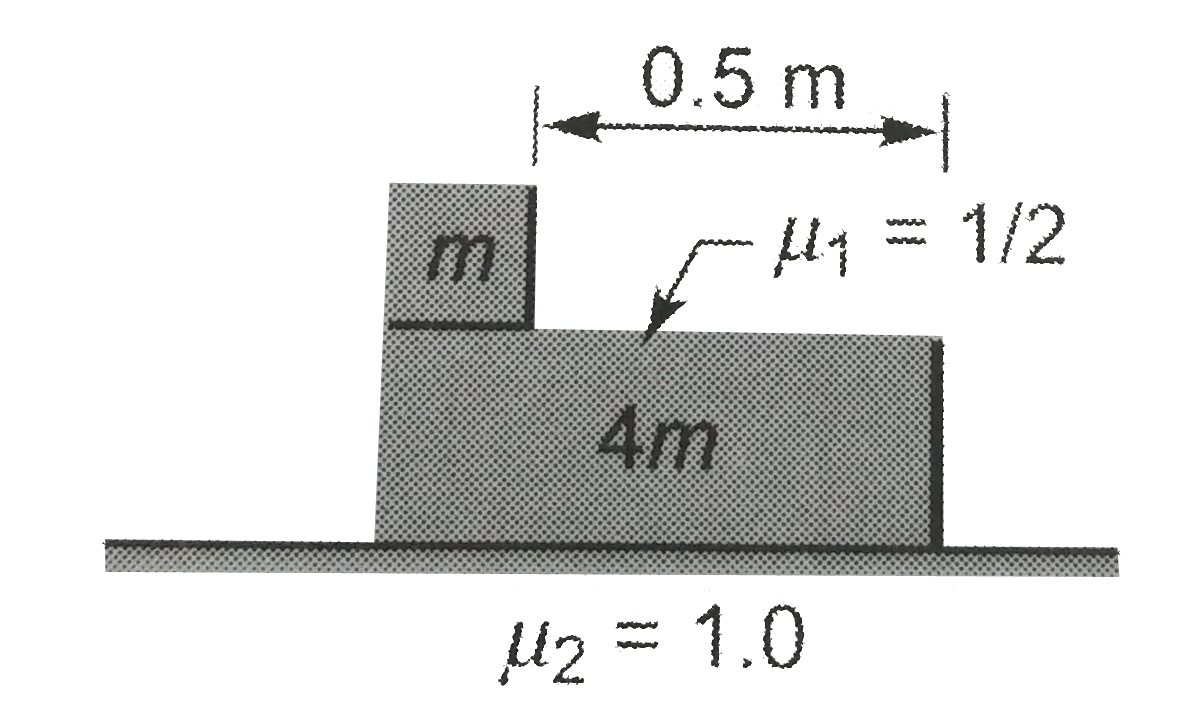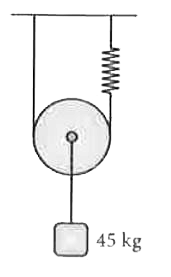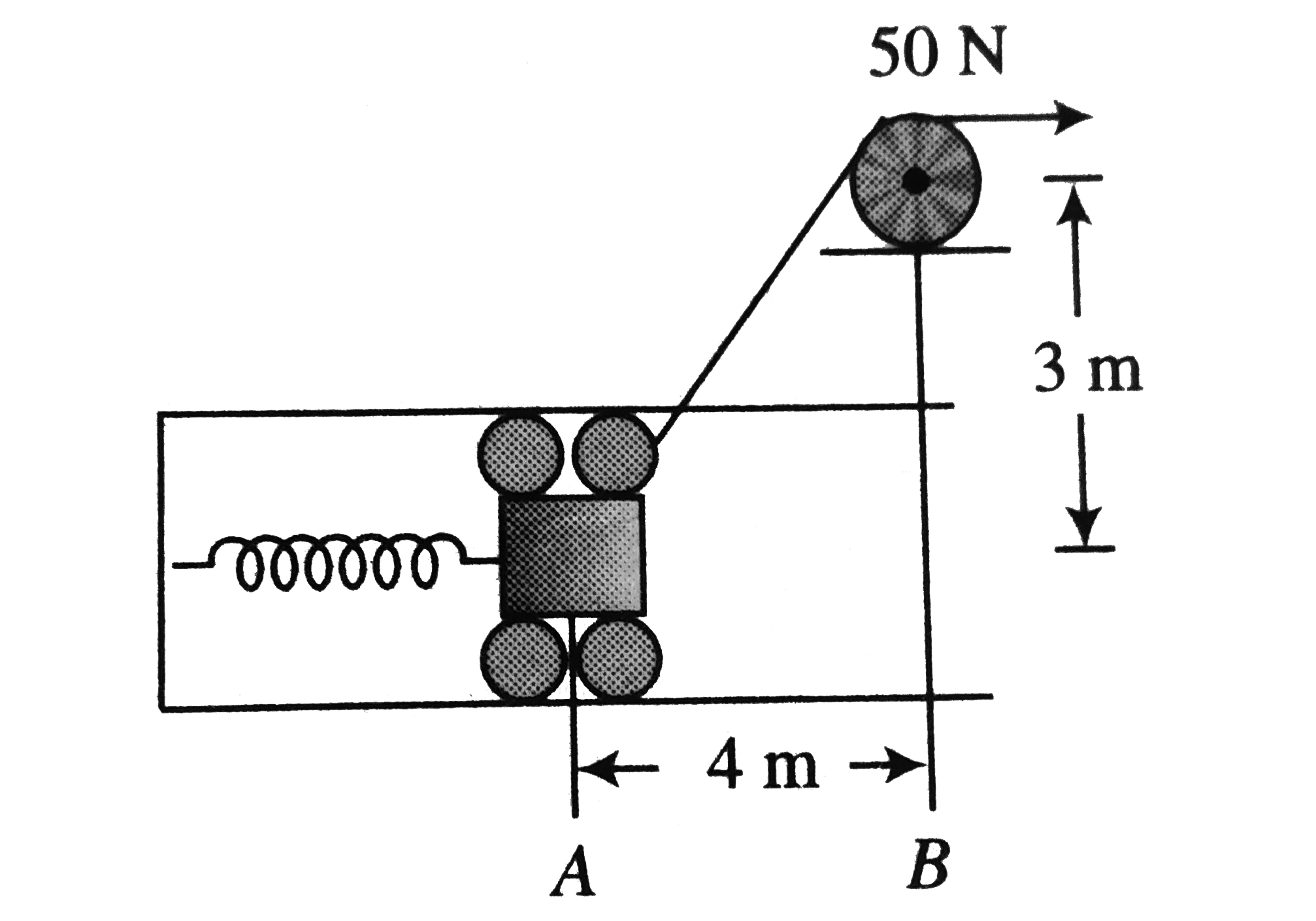In the above question, the velocity of the rear 2kg block after it separates from the spring will be-
0 m/s
5 m/s
10 m/s
7.5 m/s
The correct Answer is:A
Step by step video, text & image solution for In the above question, the velocity of the rear 2kg block after it separates from the spring will be- by Physics experts to help you in doubts & scoring excellent marks in Class 12 exams.
Updated on:21/07/2023Topper's Solved these Questions
- SIMPLE HARONIC MOTION Book:MOTIONChapter:SIMPLE HARONIC MOTION Exercise:EXERCISE -2 (Leve-I) ( SECTION - D ) ( Combination of springs )
Explore 5 Videos
- SIMPLE HARONIC MOTION Book:MOTIONChapter:SIMPLE HARONIC MOTION Exercise:EXERCISE -2 (Leve-I) ( SECTION - E,F ) ( Angu lar shm & s implependulum )
Explore 1 Video
- SIMPLE HARONIC MOTION Book:MOTIONChapter:SIMPLE HARONIC MOTION Exercise:EXERCISE -2 (Leve-I) ( SECTION - B ) ( Time per iod and angu larfrequency in SHM )
Explore 7 Videos
- SIMPLE HARMONIC MOTIONBook:MOTIONChapter:SIMPLE HARMONIC MOTIONExercise:EXERCISE -3 Section - B Previous Year Problems | JEE MAIN
Explore 23 Videos
- SOUND WAVESBook:MOTIONChapter:SOUND WAVESExercise:Exercise - 3 (Section - B)
Explore 14 Videos
Similar Questions
Both the blocks are given same velocity towards right. In how much time , the smaller block will separate from the large block.

View SolutionThe system is released from rest with the spring initially stretched 75 mm. Calculate the velocity of the block after it has dropped 12mm. The spring has a stiffness of 1050Nm−1. Neglect the mass of the small pulley.

View Solution
Knowledge Check
In the above question, the value of its angular velocity after 2 seconds will be:
A2.5 rad/secB5 rad/secC10 rad/secD20 rad/secIn the above question, find the amplitude ofoscilation of the block in the reference frame of point A of the spring-
A14√mv2kB12√mv2kC√mv2kD2√mv2kIn the above question velocities of two blocks in the centre of mass frame just after the kick are respectively given by :
A4 m/s , 10 m/sB10 m/s, 4m/sC4 m/s,-10m/sD10 m/s , -10m/s
A 20−kg block attached to a spring of spring constant 5Nm−1 is released from rest at A. The spring at this instant is having an elongation of 1m. The block is allowed to move in smooth horizontal slot with the help of a constant force 50N in the rope as shown. The velocity of the block as it reaches B is (assume the rope to be light)

View SolutionIn the above question, if equal forces are applied on two springs, then
View SolutionIn the above question, if another body is at rest, then velocity of the compound body after collision is
View SolutionIn figure, a block A of mass 2kg is moving to the right with a speed 5m/s on a horizontal frictionless surface. Another block B of mass 3kg a massless spring of spring constant 222N/m attached to it, is moving to the left on the same surface and with a speed 2m/s . Let us take the direction to the right as the positive X− direction. At some instant, block A collides with the spring attached to block B. At some other instant , the spring has maximum compression and then, finally, blocks move with their final velocities. Assuming that (i) the spring force is conservative and so there is no conversion of kinetic energy to internal energy and (ii), no sound is made when block A hits the spring, answer the following questions.

Final velocity of centre of mass of the system of blocks A and B will be :
View SolutionA block of mass m attached in the lower and vertical spring The spring is hung from a calling and force constant value k The mass is released from rfest with the spring velocity unstrached The maximum value praduced in the length of the spring will be
View Solution

